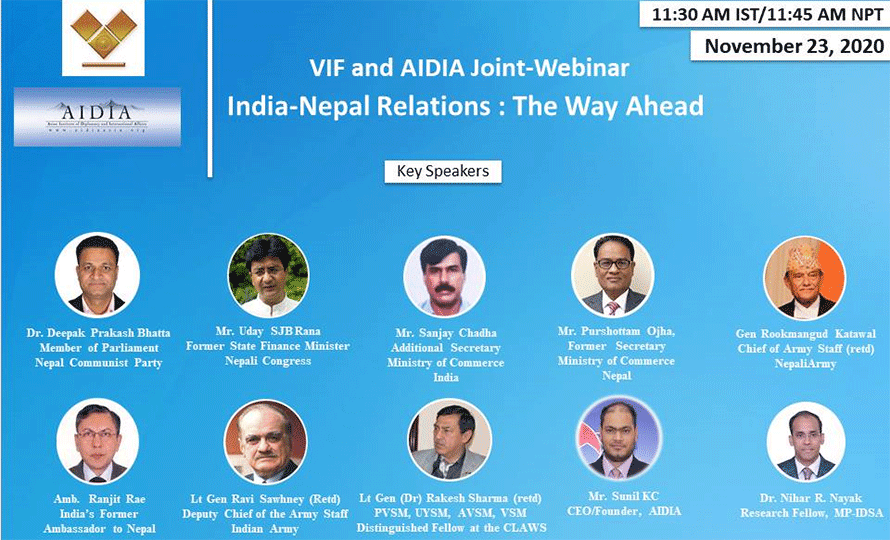Kathmandu: Former Indian Ambassador to Nepal Ranjit Ray said that during the visit of Indian Foreign Secretary Harsh Vardhan Sringala to Nepal, there should be concrete talks on border disputes, EPG report and moving forward major development projects.
Sringala will pay an official visit to Nepal on November 26. Speaking at a webinar on Nepal-India relations organized by the Asian Institute of Diplomacy and International Relations (AIDIA) in collaboration with the Vivekananda International Foundation of India, he said, “Nepal has already amended the constitution by issuing a new map. It has been two years since the Nepal-India Prominent Group (EPG) prepared its report but the report has not been understood. Nepal should explain why India did not understand the report. Nepal has also raised the issue of revising the 1950 treaty. It is better to discuss this issue. ‘
Former Ambassador Ray said that the issue of finalizing the detailed project report (DPR) of the Pancheshwor project should also be discussed during the Foreign Secretary’s visit. He said, “During the visit of the Foreign Secretary, some progress should be made in this regard and it should be announced at the forthcoming meeting of the Foreign Minister.”
Communist Party of Nepal leader Deepak Prakash Bhatta said that the major problems between the two countries could not be resolved. He opined that if the EPG report is not understood, the reason should be made public. He stressed on the need to hold talks on this issue at the table.
Bhatta said, “The problems between Nepal and India should be discussed at the political level and in various mechanisms between the two countries. He said there should be talks on the border first at the survey department of both the countries, then at the diplomatic level and at a higher level.
Stating that very little progress has been made in the Pancheshwor project, he said that India has more responsibility to move the project forward.
Former Commerce Secretary Purushottam Ojha said that the implementation process of the bilateral plan would be delayed. He said that until a few years ago, India was the largest direct investor in Nepal, but now China has overtaken India. He said that initiatives should be taken to attract foreign investment from other countries including India.
Nepali Congress leader Uday Shamsher Rana said that Nepal’s relations with its neighbors bordering India and China have always been a high priority. Stating that relations between the two countries deteriorated in 2020 due to the Kalapani border dispute, Rana said that there had been no high-level talks between the two countries till some time ago.
He said, “Recently, the visit of Indian RAW chief Samant Kumar Goyal to Nepal has become controversial, but I think it is normal for the head of the intelligence agency of a neighboring country to visit a friendly country and get information about security interests.”
He said that this was not the first time that the RAW chief had visited Nepal and that almost all the RAW chiefs had visited Nepal. But certain questions have been raised about Goyal’s visit, first, the timing of the visit and second, that Goyal only met the Prime Minister. He should have met his Nepali counterpart, security chiefs and others’, Rana said. He said that even though the visit of the head of the intelligence agency would be secret, the Nepali side had made it public.
Former Chief of Army Staff Rukmangat Katawal said that Nepal and India could not live without dialogue. Stating that mistrust and apprehension prevailed in Nepal-India relations at this time, he said that it should be investigated. He said, “The cause of mistrust between Nepal and India should be well identified and treated well.” He questioned why India refused to understand even two years after the EPG prepared the report.
Sunil KC, founder of AIDA, said that both Nepal and India should now move forward on the issue of economic cooperation. “Political and other issues have overshadowed the potential for economic cooperation between the two countries, which needs to be taken forward,” he said.
The founding director of the Vivekananda Foundation is Ajit Doval, now India’s National Security Adviser. The program is aimed at the Indian Foreign Secretary’s visit to Nepal.
